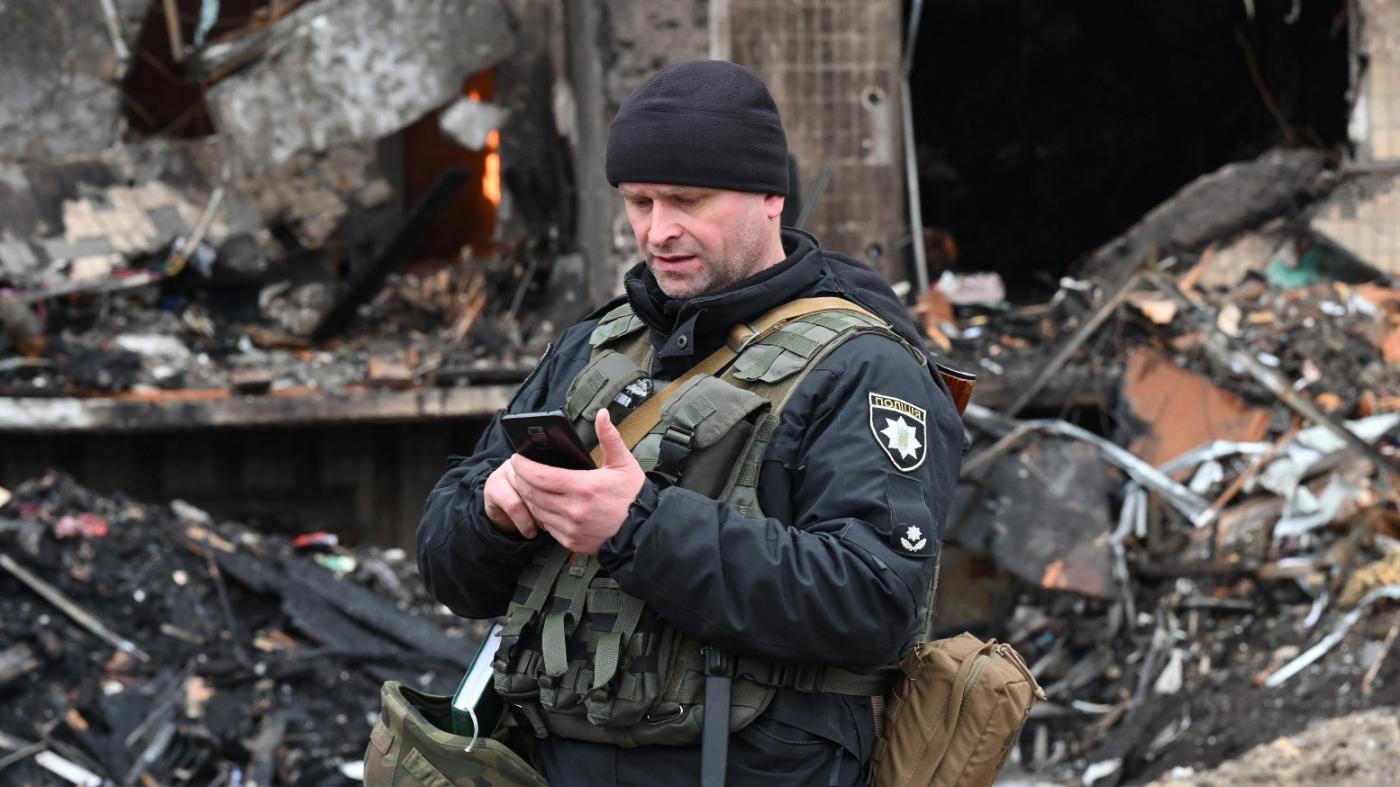
by By Abbas Al Lawati and Nadeen Ebrahim — msn.com — The Middle East found itself dragged into coverage of the conflict in Ukraine over the past week as journalists descended on the country to cover the biggest European war in decades. Western war reporters, more used to being deployed in Middle East conflict zones, were quick to make comparisons. Some of those comparisons went overboard, causing outrage in the Arab world. “This isn’t a place, with all due respect, you know, like Iraq or Afghanistan that has seen conflict raging for decades,” said CBS News foreign correspondent Charlie D’Agata, referring to Ukraine. “You know, this is a relatively civilized, relatively European… city.” He later apologized.
Other news outlets poured sympathy on Ukrainian victims, with interviewees and correspondents pointing out that, unlike Middle Eastern refugees, Ukrainian victims were “white,” “Christian,” “middle class,” “blonde” and “blue eyed.” In a matter of days, hashtags, and even t-shirts, featuring the phrase “civilized” surfaced in the Middle East in protest. The media coverage prompted the New York-based Arab and Middle Eastern Journalists Association to issue a statement condemning the “pervasive mentality in Western journalism of normalizing tragedy” in places like the Middle East.
Its president Hoda Osman, who has reported for several Western media outlets, including France24, ABC News and CBS News, said the contrast between coverage of Western victims versus Middle Eastern ones demonstrates a dehumanization of the latter. We asked her why she feels this is happening and what can be done about it. Western news outlets have many more minority journalists than they used to. Has that diversity trickled down to coverage? There’s no doubt that having more minority journalists would lead to better coverage, whether it’s through catching misinformation, bias and racism, booking interviews with knowledgeable people who understand the nuances, offering background and context or helping with something as simple as correct translations and pronunciations.
Over the past 16 years, we’ve seen the number of journalists of Arab and Middle Eastern descent working in the Western media grow significantly. There’s also more diversity in the type of media outlets [Middle Easterners] are a part of, from local TV stations and newspapers to occupying senior positions at national and international news outlets. But we still need more. Simply being in the room makes a difference and results in improved reporting.
Is the level of bias that you see in the Western press unprecedented? What’s the difference this time?
What is sad this time is that the [offending] comments came so casually, spontaneously, and as a result, revealed existing bias, something we would expect a journalist covering an international event to be above. Sadly, we were not shocked. The remarks got some attention thanks to social media, but we knew this kind of bias and racism exists.
How seriously do you think news outlets are taking these claims of bias?
I think public pressure will have some impact. I also expect that many organizations truly want to do the right thing. We have called on newsrooms to train correspondents on the cultural and political nuances of regions they’re reporting on, and not rely on American- or Euro-centric biases.
Do you think now that Western journalists have covered a European war they will be more sympathetic to victims of Middle Eastern wars?
To be honest, I don’t think it even matters whether or not they do. We are just asking journalists to be journalists and do a good job of reporting without inserting their own biases into the story and making unnecessary comparisons. The transcript has been edited for length and clarity



